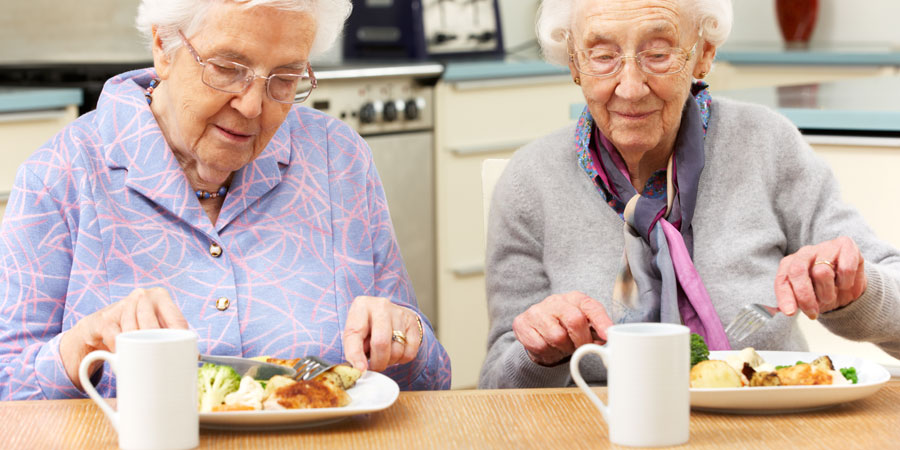How To Eat Well As You Age

It’s always important to eat well. But it’s even more important that we eat well as we age to promote a long and healthy life.
Food is our fuel. Eating the correct food allows the body to perform at its best, fight ageing, fight disease and boost immunity.
We all know that eating the right food promotes health and wellness by giving us all the vitamins and minerals needed to function effectively. However, eating the wrong foods can cause our bodies unnecessary stress.
As we age, we need fewer calories, but still need lots of nutrients. However, appetites wane as we get older. You may notice a change in your sense of smell and taste which may cause food to seem bland and less enjoyable.
Weight gain and weight loss can become a problem with age
Older adults may become underweight due to:
- Reduced appetite
- Reduced ability to shop regularly for fresh and nutritious foods
- Reduced ability to cook
Older adults may become overweight due to:
- More reliance on convenience and processed foods
- Increased sugar intake (from convenience foods)
- Reduced movement and exercise
So how do you eat well as you age? Here are some tips to get you started.
Eating well as you age
The Eatwell Guide shows the different types of foods and drinks we should consume – from which food groups and in what proportions – to have a healthy, balanced diet.
- Ideally, eat at least 5 portions of a variety of fruit and vegetables every day.
- Base each meal on a source of carbohydrate such as potatoes, bread, rice, pasta or other starchy foods and choose wholegrain varieties where possible.
- Choose some dairy or dairy alternatives (such as soya drinks) each day, choosing low fat and low sugar options where possible.
- Include some protein each day. This can be in the form of beans, pulses, fish, eggs, meat and other proteins (2 portions of fish every week, one of which should be oily, e.g. tuna, mackerel, pilchards).
- Choose unsaturated oils and spreads and eat in small amounts.
- Drink 6-8 cups/glasses of fluid a day.
If you are regularly consuming food and drinks high in fat, salt, or sugar then it’s a good idea to try and have these less often and in small amounts (ideally very rarely).
Sugar, fat and salt
Diets that are high in sugar, fat and salt have been linked to common health conditions such as heart disease, cancer, high blood pressure, stroke, obesity and tooth decay. Unfortunately, many of the processed convenience foods, ready meals and savoury snacks can be high in sugar, fat, and salt.
Eating too much salt can increase your risk of high blood pressure and stroke. So, look for low-salt versions of foods where you can. Also, try adding salt to your food at the table rather than when you cook. Often, less salt is consumed when added at the end.
Foods that are high in saturated fat such as cakes, sausages, and cheese, increase cholesterol levels in the blood and raise your risk of heart disease and stroke. These are often everyday food items but should in fact only be eaten very occasionally.
Tips for people who don’t enjoy eating as much as they’ve got older
- If food tastes bland, try adding some stronger flavours. Sweetener, ginger, garlic, chilli, herbs and fresh lemon or lime, all add flavour without adding salt or sugar.
- Don’t get hung up on certain meals at certain mealtimes. If you want breakfast for dinner, or vice versa, go with it!
- Try eating smaller meals more regularly if a large plate feels too much in one sitting.
- When you cook, make bigger batches, and freeze some so you’ve always got a meal ready to heat up on days you don’t feel like cooking.
- Calorie packed smoothies and finger foods are also good for smaller appetites.
Good nutrition as you age is very important to help you stay as healthy as possible. While tastes and appetites can change, it’s essential to try and consume a range of food from all food groups. In addition to this, reducing the amount of sugar, fat and high salt processed foods, can improve health as we age.